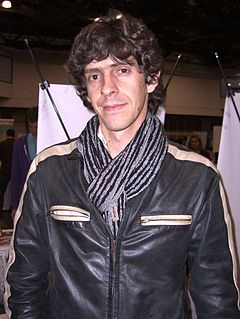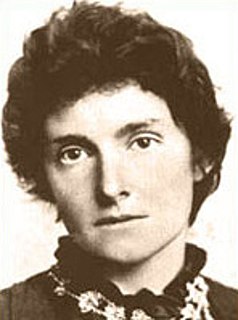A Quote by Maggie O'Farrell
Always, at the end of every book, there are things you will be unsatisfied with, and still more things that later on you will realize were not right. But mistakes are part of what a book is. That itchy, dissatisfied feeling at the end of a novel is useful. It's what keeps you writing and gets you writing the next one. It's what keeps you learning.
Related Quotes
When I'm writing, I'm thinking, "Well, this might be a book that I'll always be happy with, and certainly readers will be happy with." But another part of me knows that when I'm past the stage of writing, the book is gonna have good things about it, bad things about it - probably more bad than good. I just know that. That's who I am.
Generally I start writing when I have even the smallest idea of how a book is going to go, because the physical process of writing itself keeps the mind active and focused on the job at hand. Usually I write in about 5 drafts, but that simply means there are 5 definite times when I go in a linear fashion from the beginning to the end of the book.
One of the few things I know about writing is this: spend it all, shoot it, play it, lose it, all, right away, every time. Do not hoard what seems good for a later place in the book, or for another book; give it, give it all, give it now. . . . Something more will arise for later, something better. These things fill from behind, from beneath, like well water. Similarly, the impulse to keep to yourself what you have learned is not only shameful, it is destructive. Anything you do not give freely and abundantly becomes lost to you. You open your safe and find ashes.
Don't you think it's rather nice to think that we're in a book that God's writing? If I were writing a book, I might make mistakes. But God knows how to make the story end just right--in the way that's best for us." Do you really believe that, Mother?" Peter asked quietly. Yes," she said, "I do believe it--almost always--except when I'm so sad that I can't believe anything. But even when I don't believe it, I know it's true--and I try to believe it.
The process for writing a picture book is completely different from the process of writing a chapter book or novel. For one thing, most of my picture books rhyme. Also, when I write a picture book I'm always thinking about the role the pictures will play in the telling of the story. It can take me several months to write a picture book, but it takes me several years to write a novel.
In my experience, writing a novel tends to create its own structure, its own demands, its own language, its own ending. So for much of the period in which I'm writing, I'm waiting to understand what's going to happen next, and how and where it's going to happen. In some cases, fairly early in the process, I do know how a book will end. But most of the time, not at all, and in this particular case, many questions are still unanswered, even though I've been working for months.
As for my writing process, there is one truth I have discovered after writing some twenty-plus books: Not every book is the same, but the middle of every book is where I really begin to question my choice of vocations. The beginning and end is usually fairly clear to me, but that middle just sucks the life right out of me.
I believe that, more than anything else, this grief of constantly having to face down our own inadequacies is what keeps people from being writers. Forgiveness, therefore, is key. I can't write the book I want to write, but I can and will write the book I am capable of writing. Again and again throughout the course of my life I will forgive myself.






































